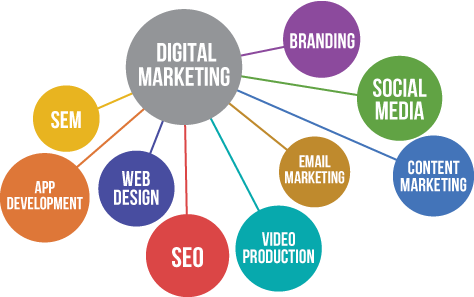Businesses wishing to continue enjoying favorable growth understand the importance of planning and creating a digital marketing plan. With the world going global and several potential customers now online, businesses need to position themselves where they can be found – on the internet. Digital marketing agencies understand the importance of effective online marketing plans, so they create tailored solutions for their clients.
As a business owner looking to scale a digital marketing agency, the effectiveness of your digital marketing plan tells all the difference your client needs to know. In this article, we will touch on creating a digital marketing plan that works for your clients and turns their businesses around.
Below are the steps to note when creating a marketing plan for yourself or your client.
1. Define The Brand
Defining your or your client’s brand tells all the difference between you and any other business out there. Your digital marketing plan should align with your brand and target the audiences interested in those unique selling propositions you’re bringing to the market.
For example, a sustainable energy brand will target environmentalists and eco-friendly audiences interested in lowering fossil fuel usage while championing green and sustainable options.
At this stage, brainstorm what sets your business apart from others or what sets your client’s business apart. You can also consider other unique selling points your business or client’s business brings to the table. Identifying those key elements and characteristics of your business can help to shape your marketing plan and the audiences they are targeted at.
2. Create Buyer Personas
Your business without customers is a failed one. All business owners are in business to make a profit by attracting the right customers and getting them to buy. Buyer personas are a good way to understand your target audiences and how they’re likely to relate to your brand.
Buyer personas are fictional people with different traits that can affect their decision and decision-making skills. By understanding your buyers, you can determine what appeals the most to them, tailor your marketing strategy around it, and drive sales to your services and/or products.
When creating the buyer persona, focus on the important information that helps you class each buyer into a well-defined persona bucket. The important data for this classification include;
- Audience or consumer location
- Age
- Income bracket
- Job title or type
- Hobbies and interests
- Goals
You can further expand on the data buckets above to better understand your buyers to the letter. Doing this gives you a blueprint of when and how to launch your marketing campaigns, who to direct them at, where to market, and how to convert.
3. Set Your Goals
A marketing plan without an end goal is more like a statement. With your brand defined and your audience mapped out, proceed to define the goals you wish to attain. While defining those goals, ensure to keep a realistic view of what can be done in the short term vs. what you can achieve long term.
For short-term goals, ensure that you’ve set a series of concurrent goals that will ultimately culminate into a bigger goal you aim to achieve.
The important factors to keep in mind when setting out your marketing goals are SMART;
- Specific
- Measurable
- Attainable
- Relevant
- Timely
Score each goal on the SMART scale and ensure it passes before setting it.
4. Choose the most appropriate digital marketing method
Knowing where your audiences are and showing up there remains the most effective way to market your brand, product, and service. Marketing on channels your audience doesn’t use may be a waste of money due to a low conversion rate.
To keep your marketing plan effective, identify the largest places where your audiences are, whether on social media, forums, etc. and target your marketing to those places. You can also consider a combination of other marketing solutions like;
- Search engine optimization (SEO) for organic traffic
- Pay-per-click (PPC) advertising
- Content marketing
- Email marketing
- Influencer marketing
- Social media marketing
5. Define Your Budget
Money is an important part of setting up a marketing plan. As a digital marketing agency, you want to manage your client’s marketing budget most effectively. Discuss with the client what they plan to set aside to achieve their marketing goals and distribute the funds on the most effective marketing channels and strategies.
Clients are more likely to release more money when they notice favorable growth over time. This should be your aim, to deliver quick wins, grow their business, and ultimately grow their marketing budgets.
6. Measure Results
The effectiveness of your marketing budget is in the quality of results obtained over time. For most digital marketing plans, you can expect to start seeing results within months of implementation. You can return to the board to better understand what the results mean for you and your client and the areas that require further improvements.
Always remember that a marketing plan is dynamic and may require changes from time to time to reach new goals or adopt new strategies to reach set goals.
































